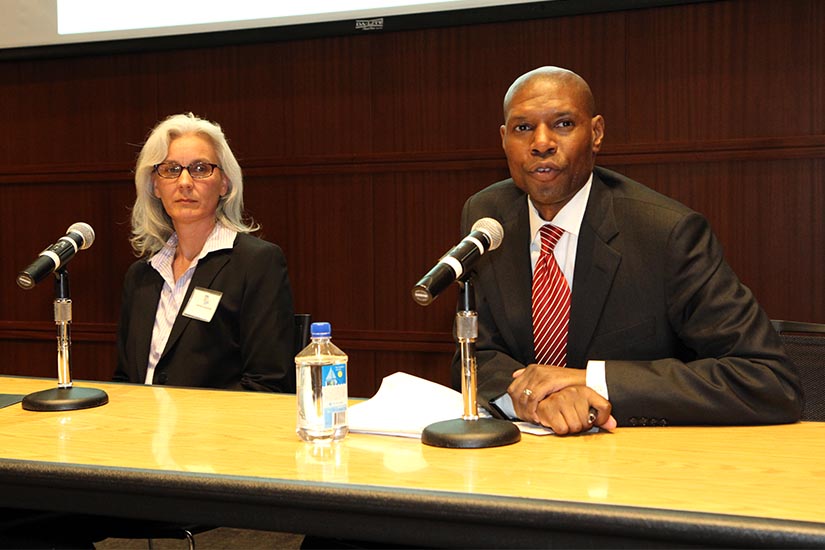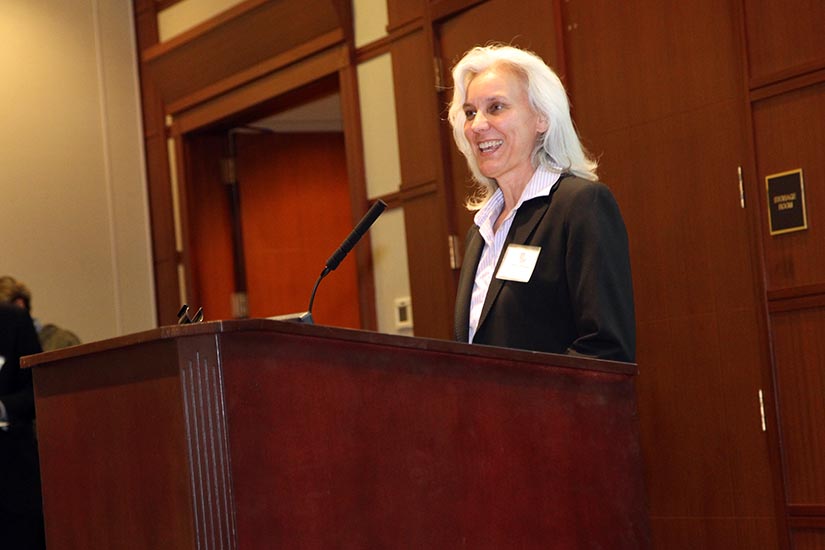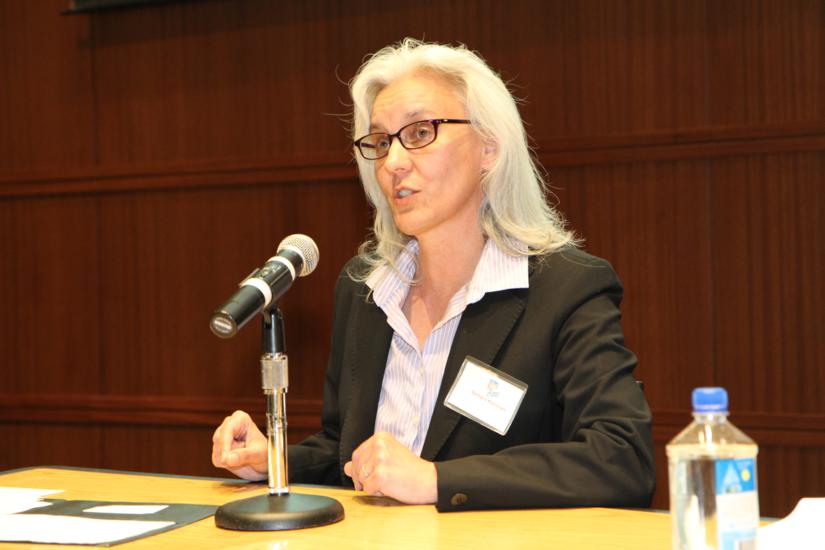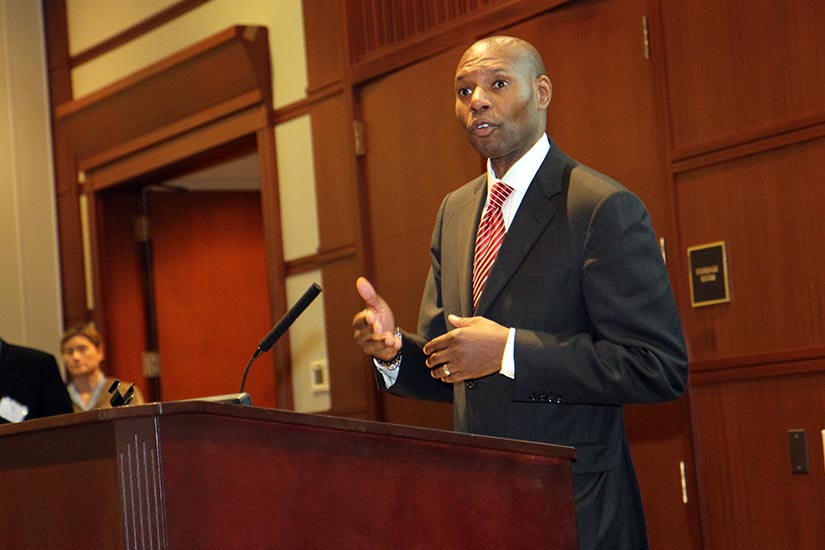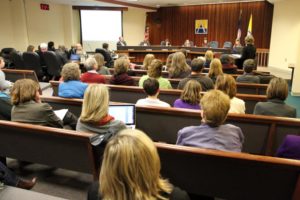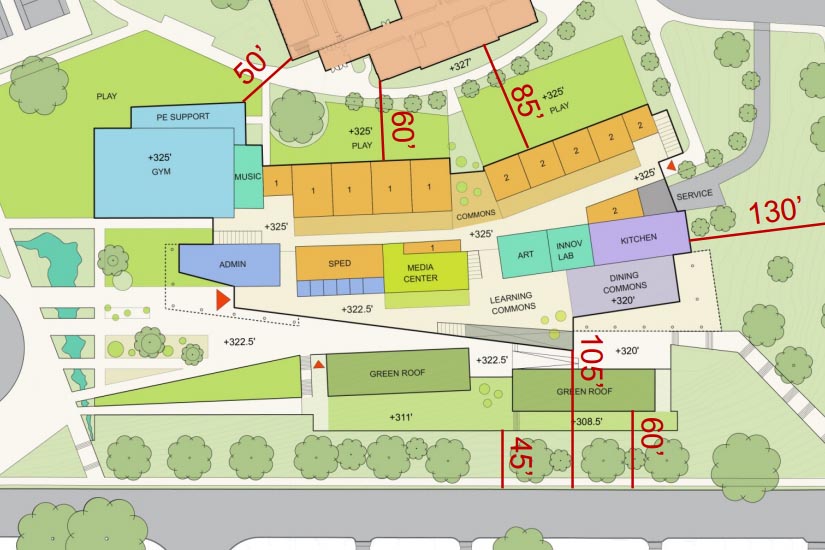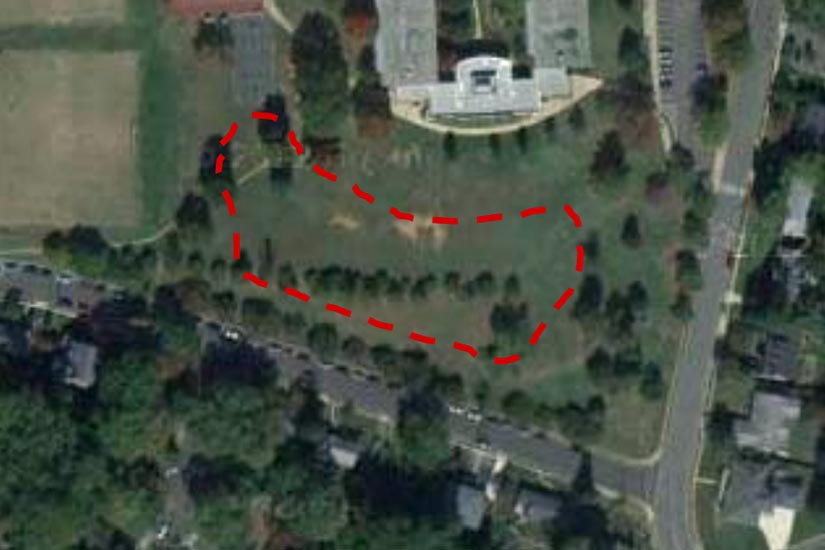Building new schools may not be the only answer to overcrowding in Arlington Public Schools, School Board hopeful Barbara Kanninen said last night at the Arlington County Democratic Committee meeting.
Flexible scheduling, night classes in high school, and a school year that extends through the summer might ease crowding in middle and high schools without the expense and loss of open space associated building new facilities.
“We know right now that we have lots of kids coming… we’re building elementary schools right now but in five years they’re going to be heading to middle school and high school,” Kanninen said. “We need to think about where we’re going to educate them given that we might not have the money to build and we might not have the green space to build.”
Kanninen’s stance on building was one point of contrast between her and incumbent School Board member James Lander, who she’s trying to unseat. Kanninen and Lander debated at the ACDC meeting in advance of next week’s Democratic School Board endorsement caucus.
On school capacity, Lander emphasized the School Board’s existing construction plan and his “county-wide vision” — an apparent contrast to Kanninen’s north Arlington campaign focus.
“We’re growing by almost an elementary school per year,” he said. “We have a strategy in place, we’re building new facilities and we’re adding additions to existing facilities. We’re looking at and evaluating both middle school boundaries. This is something that takes experience and a county-wide vision.”
During the debate Kanninen spoke of her priorities: expanding STEM — science, technology, engineering and mathematics — programs, individualized education and adult mentorships, and using analytics and her PhD in economics to help make “smarter, more efficient choices with taxpayer money.”
On many of those key campaign points, Lander echoed his own stances. He said students need STEM skills so they can grow up not to be workers, but “employers and entrepreneurs.” He touted a mentorship program he created for minority students. And he also emphasized the importance of a learning environment that adapts to the strengths of individual students.
“My approach to student achievement and student success is responsive education… and that mean meeting the needs of all groups,” he said. By way of an anecdote, he joked about how his sister was a bookworm while we was more likely to fall asleep while trying to read school books.
Both Kanninen and Lander said they support arts education and the use of school buildings by members of the community. Both also said that standardized tests have become too pervasive in schools and are detracting from the overall education of students.
Answering a question about bullying, Lander said APS has a “zero tolerance” policy toward bullies. Kanninen said adult support of “students’ social and emotional health” is paramount, and that students should always have an adult mentor to approach with issues like bullying.


